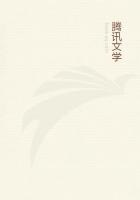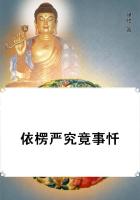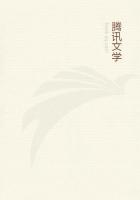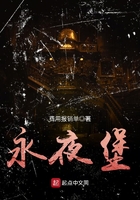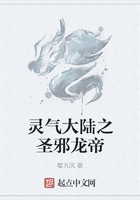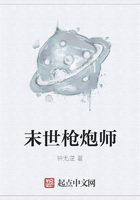Once upon a time there was a youth called Moti, who was very big and strong, but the clumsiest creature you can imagine. So clumsy was he that he was always putting his great feet into the bowls of sweet milk or curds which his mother set out on the floor to cool, always smashing, upsetting, breaking, until at last his father said to him:
'Here, Moti, are fifty silver pieces which are the savings of years; take them and go and make your living or your fortune if you can.'
Then Moti started off one early spring morning with his thick staff over his shoulder, singing gaily to himself as he walked along.
In one way and another he got along very well until a hot evening when he came to a certain city where he entered the travellers' 'serai' or inn to pass the night. Now a serai, you must know, is generally just a large square enclosed by a high wall with an open colonnade along the inside all round to accommodate both men and beasts, and with perhaps a few rooms in towers at the corners for those who are too rich or too proud to care about sleeping by their own camels and horses. Moti, of course, was a country lad and had lived with cattle all his life, and he wasn't rich and he wasn't proud, so he just borrowed a bed from the innkeeper, set it down beside an old buffalo who reminded him of home, and in five minutes was fast asleep.
In the middle of the night he woke, feeling that he had been disturbed, and putting his hand under his pillow found to his horror that his bag of money had been stolen. He jumped up quietly and began to prowl around to see whether anyone seemed to be awake, but, though he managed to arouse a few men and beasts by falling over them, he walked in the shadow of the archways round the whole serai without coming across a likely thief. He was just about to give it up when he overheard two men whispering, and one laughed softly, and peering behind a pillar, he saw two Afghan horsedealers counting out his bag of money!
Then Moti went back to bed!
In the morning Moti followed the two Afghans outside the city to the horsemarket in which they horses were offered for sale.
Choosing the best-looking horse amongst them he went up to it and said:
'Is this horse for sale? may I try it?' and, the merchants assenting, he scrambled up on its back, dug in his heels, and off they flew. Now Moti had never been on a horse in his life, and had so much ado to hold on with both hands as well as with both legs that the animal went just where it liked, and very soon broke into a break-neck gallop and made straight back to the serai where it had spent the last few nights.
'This will do very well,' thought Moti as they whirled in at the entrance. As soon as the horse had arrived at its table it stopped of its own accord and Moti immediately rolled off; but he jumped up at once, tied the beast up, and called for some breakfast. Presently the Afghans appeared, out of breath and furious, and claimed the horse.
'What do you mean?' cried Moti, with his mouth full of rice, 'it's my horse; I paid you fifty pieces of silver for it--quite a bargain, I'm sure!'
'Nonsense! it is our horse,' answered one of the Afghans beginning to untie the bridle.
'Leave off,' shouted Moti, seizing his staff; 'if you don't let my horse alone I'll crack your skulls! you thieves! I know you!
Last night you took my money, so to-day I took your horse; that's fair enough!'
Now the Afghans began to look a little uncomfortable, but Moti seemed so determined to keep the horse that they resolved to appeal to the law, so they went off and laid a complaint before the king that Moti had stolen one of their horses and would not give it up nor pay for it.
Presently a soldier came to summon Moti to the king; and, when he arrived and made his obeisance, the king began to question him as to why he had galloped off with the horse in this fashion. But Moti declared that he had got the animal in exchange for fifty pieces of silver, whilst the horse merchants vowed that the money they had on them was what they had received for the sale of other horses; and in one way and another the dispute got so confusing that the king (who really thought that Moti had stolen the horse)said at last, 'Well, I tell you what I will do. I will lock something into this box before me, and if he guesses what it is, the horse is his, and if he doesn't then it is yours.'
To this Moti agreed, and the king arose and went out alone by a little door at the back of the Court, and presently came back clasping something closely wrapped up in a cloth under his robe, slipped it into the little box, locked the box, and set it up where all might see.
'Now,' said the king to Moti, 'guess!'
It happened that when the king had opened the door behind him, Moti noticed that there was a garden outside: without waiting for the king's return he began to think what could be got out of the garden small enough to be shut in the box. 'Is it likely to be a fruit or a flower? No, not a flower this time, for he clasped it too tight. Then it must be a fruit or a stone. Yet not a stone, because he wouldn't wrap a dirty stone in his nice clean cloth.
Then it is a fruit! And a fruit without much scent, or else he would be afraid that I might smell it. Now what fruit without much scent is in season just now? When I know that I shall have guessed the riddle!'
As has been said before, Moti was a country lad, and was accustomed to work in his father's garden. He knew all the common fruits, so he thought he ought to be able to guess right; but so as not to let it seem too easy, he gazed up at the ceiling with a puzzled expression, and looked down at the floor with an air or wisdom and his fingers pressed against his forehead, and then he said, slowly, with his eyes on the king,--'It is freshly plucked! It is round and it is red! It is a pomegranate!'

